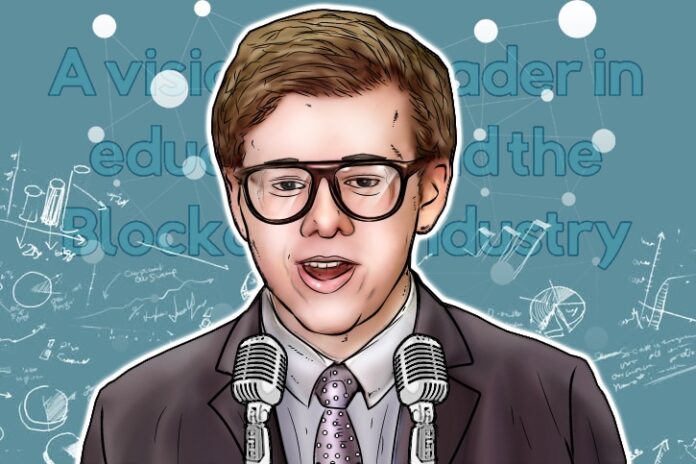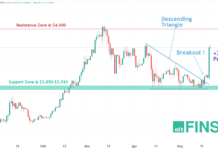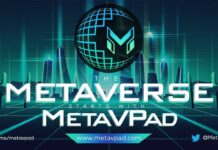The story of Erik Finman is great from many points of view. It’s a combination of intelligence, entrepreneurship, risk and challenge. Erik at the age of 19 has managed to become a well-known entrepreneur in the education industry and the Blockchain world.
A Blockchain Story: An opportunity in a life
A Negative education system.
To understand Erik’s history, we have to look back to 2012. Growing up in Idaho outside of Coeur d’Alene, Finman was especially frustrated with his high school teachers and told his parents to let him drop out at 15 because his teachers were negative and told him that the only thing he would do in his life would be to work at McDonald’s. Also, he wanted to start his own business at a very earlier age.
The bet.
Finman’s parents accepted that he studied at home, since their other two children studied at home and they did not do badly. His older brother, was a child prodigy since he was 16 years old at Johns Hopkins University and Ross, his middle brother works in the world of robotics after passing through Harvard and MIT. When Erik Finman left high school to study at home, he made a bet with his parents: if he was a millionaire by the time he turned 18, he would not be forced to go to university. That year his grandmother gave him an envelope with $1,000 for his birthday and instead of spending it on a video game console or a phone like any other teenager, he preferred to invest in Bitcoin, which value on that moment ranged from $10 to $12, buying a total of more than 80 Bitcoin (BTC).
Selling on the top: 1 BTC = $1.200.
It took almost 2 years for Bitcoin to reach $1,200 for the first time. The $1,000 had become $100,000, he turned some BTC on FIAT and got enough money to create a platform called Botangle, a company which purpose was to create a meeting point for students who were looking for information other than what is learned in colleges and universities, and also to offer experts who could provide support.
Botangle: an elective learning by the student.
Botangle is a platform that provides private classes on any subject, charging for hours. We just have to find the subject we want to learn and find the right teacher, consult their file and hire their services. Botangle offers online videoconferencing and office tools to allow full interaction between students and teachers, helping to distribute knowledge regardless of the geographical area.
Buy on the deep (and HODL): 1 BTC = $200.
The learning platform that already had 20 employees and several active users participating in the project was sold in January 2015. The investor gave Erik an option: either to pay $100,000 or 300 BTC, which price at that moment had dropped to just over $200 . Of course, Finman opted for the 300 BTC.
https://twitter.com/erikfinman/status/877255804860092416
The Interview
Thanks to the collaboration of Erick’s personal agent, Kathryn Campisano and our editor-in-chief, Simon Cocking, it was possible to arrange an exclusive Skype interview with Erik Finman for Cryptocoins.New:
Abel Colmenares: First of all, we wanted to thank you for the opportunity you have given us to make this interview possible and for the time you are dedicating to us.
Erik, we have read your story and we love that you are willing to share it with the public. Our public is beyond excited about knowing your story. Your decision-making and actions that you have taken from a young age are worthy of respect, merit and recognition. The Blockchain industry needs leaders at this time to guide people who are not aware of this technology and we hope that from Cryptocoin.News, with you, we can do our bit. Erik, we would like to start this interview with the following question:
How and when was the first time you heard about Bitcoin and what was your first impression about the technology?
Erik Finman: A few years back, my family and community were surrounded by all these protests, tear gas and conflict was part of that time. But during this time is where I first heard about bitcoin, I was part of this political community, where people thought that bitcoin was this way of being, completely independent of everything. There’s a lot of corruption around fiat currency, around of wall street, and banks and all the financial system basically, so people thought of bitcoin as the way to get out of that. This was around 2010 when I first heard about it. I remember when it was worth pennies, and then, after studying the technology, it was kinda like this huge catalyst for political change. I remember this was kinda what we all thought about it back in the day, and I think that’s was kinda the main thought because, with the blockchain technology you can’t shut anyone down, companies can’t shut you down, if you put a person in jail, the government can’t stop you. I think this was what everybody thought was so great about bitcoin, This is the value of bitcoin.
AC: When you invested the $1,000 in Bitcoin, did you really think that this investment could make you a millionaire before you turned 18?
EF: I think with bitcoin, I kinda knew it was really going to go up in value, and I remember thinking a lot about it, what could happen before I made a million dollars by the time I was 18. I remember thinking that I had a lot of ways to do it, to get to that goal; but I always thought that bitcoin was going to go up, so I think I kinda knew in a way; which is why I used those $1,000 and bought bitcoins when the value was in the $10 – $12 range. After that, I spent every day trying to get more and more points up on this, and when it finally happened, I sold some when it reached the $1,200 barrier. I then used what I got out of that sell to start a business, ended up with less bitcoins but then I was able to generate more money off that business and eventually sold that company for bitcoins, which was very cool. I actually made a lot of those bitcoins by working my ass off.
AC: If you were given the opportunity to change the world education system as it is right now, would you make it look like Botangle? What would be the tools or innovations that you would introduce to make it better?
EF: I thought a lot about this, I don’t know if you’ve seen some news in the articles that came out. I’m looking at starting my own impersonal school because I’ve done it online very successfully and now I do a lot of education consulting for like the government, we have a company out there where we do consult and teaching training over there so that’s a very cool thing. I am, and we have some other people as well, where we have all these experience in education and we feel like we can really change things we feel like we can really shake things up. We have one person on our team that even started their own school, and that was something that I was kinda a part of, but it was mainly this person. So I think we just have this excellent team where we can really fix education, and we want to do this impersonal school, we’re looking in Dubai, Singapore and maybe even the US. We also developed a way where it can be cheap and affordable for the student, teachers can make an obscene amount of money, so this business model could become a billion-dollar company as well. Sounds almost too good to be true but we actually have done it and we’ve done the math and we just have to wait and see.
It’s going to be a while before it gets going but we think we can fix it and we think this is where bitcoin will have to reach $60,000, and I mean, don’t get me wrong I already have money to do this right now but it’s even better if Bitcoin prices went up $60,000 tomorrow, so that this project would be where I would put most of the money into implementing that school system because it shouldn’t be the way it is right now. The reason I got into bitcoin was to get out of Wall Street and corruption and there’s so much corruption in education. No one talks about this, but there are a lot of payoffs f, to school boards and districts to get certain people in. The education system is just screwed up and it doesn’t even incentive you to learn, it just incentivizes you to take your place in a seat and listen for someone go on for 8 hours, which I don’t even think the teacher likes. It’s just not fun or incentivizing for anyone. So that’s what I would do, that’s what I am doing with education and it will look a little bit like an impersonal Botangle if you will, be a little bit different but actually pretty similar so that’s what kinda I would go for in my mind.
AC: Apart from Bitcoin, what are the Blockchain platforms that most attract you today?
EF: It’s the decentralization, the ability to almost decentralized any industry using blockchain technology in one way or another. I think that blows my mind, for example, a friend and I had this idea to develop some sort of Airbnb for Insurance companies and that was to decentralize the whole insurances market. Insurances are such a screwed up industry but if you could somehow decentralize this industry, what a world-changing would that be. We even talked to a lawyer about it and the lawyer laughed, said we could go to jail for the rest of our lives if we did AirBnB for Insurances. Even though it’s a good idea, it was not possible at the time. Now, you can do that in the blockchain to make it decentralized, an AirBnB that’s not run by any company or insurance, and that’s something incredible.
It’s an amazing idea I think, something that is totally fine and totally normal, but for some reason, it’s just not possible to do. Like some stupid rule that you can’t start your own currency, or you can’t do AirBnB for insurance or something like that; this is where blockchain technology really comes in handy. It’s a way of kinda transcend the system if you will. What bitcoin is doing to Wall Street, what uber did to taxis, blockchain technology can be similar to that, a world-changing idea where people thought some things were impossible to do but can actually be done; and even things that were in somewhere of a legal grey area, not that I recommend on going on a legal grey area but I think that’s what is so exciting about this technology, that you can overpass those obstacles and actually create great things.
AC: If today you were given $ 1,000 again, what would you invest in?
EF: There are very few like once in a lifetime opportunities that come in someone’s life, and that could allow you to just completely ride the waves, and when you know it’s the wave, that’s when you can do it. Like, I knew that was the wave, and that bitcoin was going to be big, so I thought how could I get on top of this wave. I guess now I would just trade all altcoins, I don’t really do much of them now but I would surf the wave, bitcoin was hard to work the math around but altcoin is even harder, to get to a million dollars using altcoins is possible and I think I could do it but if it was hard to do it with bitcoin, it would be like a million times harder with altcoins. Nowadays, I would do the altcoins, I still think you can get rich quick if you will by using cryptocurrency, although it’ll be a little bit harder than how it was with bitcoin but it is still possible. I would use my $1,000 to invest in alternative coins and make a million dollars and probably eventually convert that to bitcoins.
AC: What are your projects or announcements for 2018 and how can people actively follow you through social media?
EF: We’re doing a lot of exciting stuff in 2018, my satellite project is launching, there is some article about it. Earlier I got a massive contact to launch a satellite and we’re doing like a time capsule in space thing too, and it’s about to launch in March. My satellite will be launching in New Zealand and I should be even making more announcements about that imperson school that I know I’m going to be doing. My goal would be to build a ground on it soon, rather this year or the year after. I want to get going on it actually very quickly, it’s just a passionate project for me just because of my experience with the education system so I would like to get started on the education project in 2020 and I think there’s a really good shot of me actually doing that in 2020; so lots of stuff, launching of time capsule, satellite on march and the future education project.
There’s also a really cool cryptocurrency project that I can’t really talk much about but it’s going to be coming this year, that’s actually what I’ve been mainly working on and mainly thinking about. There’s like so many people saying that the blockchains technol is the future, but nobody is actually building applications on that or developing to prove this, like really showing the world what this technology really means and that’s really my goal in 2018, to really show off this technology and make it mainstream. My goal is for the average person to use this technology as well. Again, I can’t really talk about what this is going to be but I’m very excited about it. That’s probably one of the most exciting things that I’m working on right now, it’s going to be a blast.
I’m always sharing information about my future projects on my twitter account, which is @erikfinman
















